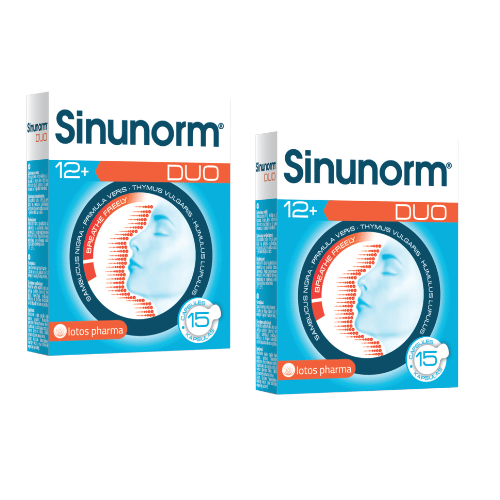What does a runny nose mean about health?

There is no “art” to catch a runny nose even in hot summer – for example, by overdoing the air conditioner in the car! A runny nose is a very common phenomenon, and often we don’t even understand the reason for our snot. However, you should pay attention to the runny nose and, especially, to the appearance of the secretions. A constant runny nose can be a sign of both chronic runny nose and serious complications.
A runny nose, or rhinorrhea, is a profuse secretion of the nasal mucosa, which can be caused by anything that irritates the inside of the nose. Most often, it occurs due to allergies and viral infections, as well as nasal polyps. However, there are quite a few other conditions that can also cause a runny nose – from “sniffing” ground pepper while cooking to hormonal changes in the body. In some cases, the nose runs all the time without any known reason.
In any case, snot and its “stocking” with handkerchiefs is very troublesome! That’s why it’s good to pay attention to the color and consistency of nasal secretions in order to navigate the question of their origin – or maybe even detect some warning symptom. Nasal discharge is conditionally divided into watery, transparent and thick, sticky greenish snot.
What most commonly causes a runny nose with watery, clear discharge?
Allergy. When the immune system overreacts to something that is normally harmless, such as pollen, mold, or pet dander, it causes allergic rhinitis, an inflammation of the nasal passages that increases mucus production. Usually, the nose runs while a person is in the vicinity of a particular allergen, and symptoms such as sneezing, eye and throat irritation, swelling of the eyelids, cough, etc. can also be added.
Viral infection. Viral infections, such as colds and flu, attack the tissues of the nose and throat. In response, the nose secretes more mucus, a clear liquid, to help trap and expel virus particles. Depending on the type of virus, the manifestations of runny nose and other symptoms may vary. Usually, runny noses are more common with colds than with flu viruses and last for 10-14 days.
Non-allergic factors. If the cause of the runny nose is neither an allergy nor a viral infection, it is called non-allergic rhinitis. This condition is thought to occur when blood flow to the nose increases, causing swelling and increased mucus production. The direct biological cause has not yet been discovered, but it is known that this rhinitis can be triggered by a number of factors, such as food or alcohol, medications, various irritants (cigarette smoke, dust, chemical fumes, perfumes, etc.), weather conditions such as temperature or air humidity, changes, increased stress level, etc. Non-allergic rhinitis is a chronic (long-lasting) condition. Its symptoms can be constant, appearing and disappearing at certain times of the year.
Hormonal fluctuations. Hormonal changes caused by pregnancy, menstruation and hypothyroidism can also upset the nose. Some pregnant women may develop a runny nose even though they have no history of allergic or non-allergic rhinitis, nor any viral infection or nasal disease. This pregnancy rhinitis is thought to be caused by changes in hormones such as estrogen and progesterone. After giving birth, this runny nose soon disappears.
Nasal polyps. They are benign (not cancerous), soft, mobile, pale gray mucous growths that develop in the nasal passages. Polyps result from chronic inflammation in the area and are associated with other conditions such as allergies and asthma. Chronic inflammation associated with nasal polyps can cause symptoms such as a persistent runny nose, nasal congestion, loss of smell or taste, pain or pressure in the face, and headaches. Other acquired or congenital changes in the structure of the nasal cavity can also be the cause of a runny nose: deformation of the nasal septum, inflammation and thickening of the nasal cochlea, etc.
Digestive disorders.For example, in the case of reflux disease, chronic inflammation can develop in the larynx, throat, nasal cavity, inflammation of the nose, and middle ear structures when stomach acid is increasingly traveling up the esophagus and entering the upper respiratory tract. A runny nose can persist until the mucosa of the upper respiratory tract is completely healed.

What causes thick, greenish discharge?
Nasal discharge can also be thick, rubbery. Their cause can simply be too dry air at home or outside, but in combination with other symptoms, such snot can indicate a bacterial and viral infection.
Bacterial agents such as streptococci, staphylococci, pneumococci are less likely to cause nasal congestion, but can be more dangerous. Nasal discharge can be yellowish or greenish in color, with an unpleasant smell, as the body tries to catch the infection by releasing pus. There may also be some blood in these hard, rubbery pieces of mucus because the mucous membranes are sensitive and bleed a little when these harder pieces of mucus come off.
In the case of a bacterial infection, more serious complications can develop – inflammation of the sinuses, inflammation of the middle ear, etc. In such cases, it is often necessary to treat with antibiotics.
You should definitely consult a doctor if:
the nose is blocked for more than 10 days and, despite treatment, there is no noticeable improvement in health;
there is a pronounced feeling of fullness, pressure in the sinuses (cheeks, eyes, forehead area);
nasal discharge has an unpleasant smell;
persistent elevated body temperature or fever.

How to treat a runny nose ?
People laugh that a treated runny nose goes away in seven days, but an untreated one – within a week. Unless the case is associated with a more serious illness, runny noses usually go away on their own, but certain treatments can relieve symptoms and strengthen the body. Here are some folk-tested remedies to relieve a runny nose!
Drink plenty of fluids. Drinking fluids and staying hydrated while fighting a runny nose can be helpful if you also have symptoms of nasal congestion. This ensures that the mucus in the sinuses is diluted to a liquid consistency and is easily expelled. Otherwise, the snot will thicken, making the nose even more stuffy. Hot herbal teas are especially good for this, as the heat and steam help expand and decongest the airways. In addition, many medicinal plants (chamomile, peppermint, thyme, elderberry, pansy, etc.) have mild expectorant and anti-inflammatory properties. Drinks that dehydrate rather than hydrate, such as coffee and alcohol, should be avoided.
Use a humidifier. The trend of humidifying indoor air with specially manufactured devices is becoming more and more popular. Humidifiers work by converting water into steam to moisten otherwise dry air. Inhaled moisture helps to thin and expel mucus and soothe sinus irritation. Good old steam inhalations – inhaling steam using inhalers or simply a bowl of hot water – work just as well. These steams will be even more effective if you add a few drops of essential oils (eucalyptus, pine, mint, tea tree, rosemary, etc.).
Adjust daily habits. During a runny nose, it is important not to overwork yourself and to rest, ventilate the rooms and go to fresh air, when going to bed, raise the head of the bed a little so that the head is higher than the rest of the body.
Over-the-counter nasal products. There are not many who will take it upon themselves to rinse their nose with mild salt water several times a day. Instead, pharmacies offer a wide range of nasal drops or sprays that reduce the swelling of the nasal mucosa, quickly relieve a stuffy nose, and make breathing easier.
Lotos Pharma offers Sinunorm DUO , a product containing natural plant extracts , which affects both the upper (nose and its sinuses) and lower (bronchi) respiratory tracts. The thyme extract contained in the composition has antibacterial activity. Elderflower extract and pansy flower extract ensure optimal respiratory function. The combination of vitamin C with zinc in acerola fruit extract contributes to the normal functioning of the immune system. Sinunorm DUO capsules are suitable for adults and children from 12 years of age.










